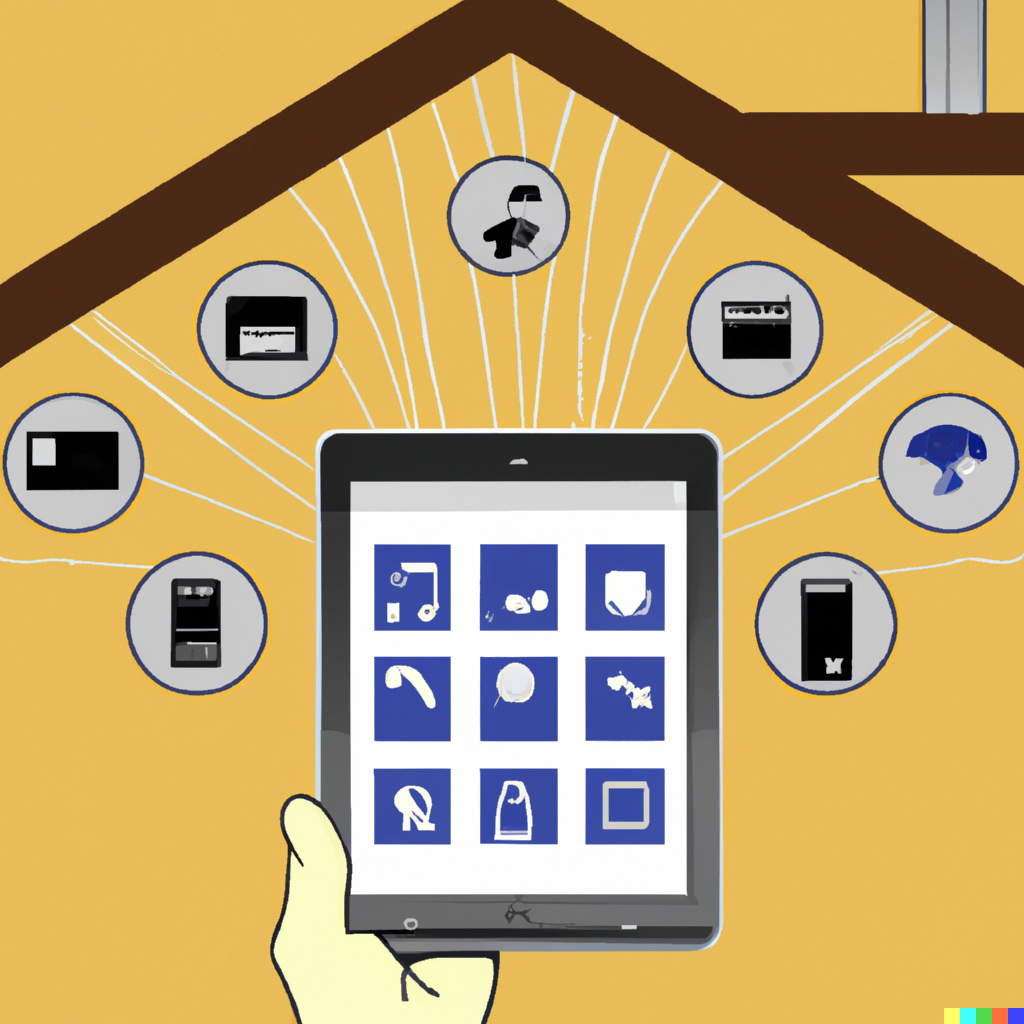July 12 | Home Technology HomeTech

The future of home technology is bright, promising a transformation in how we live, interact, and manage our living spaces. As we continue to integrate cutting-edge innovations into our homes, the concept of a smart home evolves into a more efficient, comfortable, and secure environment. Here’s a deep dive into the latest trends and technologies shaping the future of home living.
Smart lighting systems, such as Philips Hue or LIFX, allow homeowners to control the ambiance of their homes with just a voice command or a tap on their smartphone. These systems can be scheduled to turn on and off at specific times, change colors according to your mood, and even integrate with other smart devices to enhance security and energy efficiency.
Modern home security has advanced far beyond traditional locks and alarm systems. Today's smart security systems, like Ring and Nest, offer features like real-time video surveillance, motion detection, and remote access. Integration with AI allows these systems to differentiate between a potential threat and a false alarm, providing homeowners with peace of mind.
Voice assistants like Amazon Alexa, Google Assistant, and Apple's Siri have become central to home automation. These AI-powered assistants can control other smart devices, provide weather updates, play music, set reminders, and answer questions, making daily tasks easier and more efficient.
Devices like the Nest Thermostat and Ecobee have revolutionized home energy management. These smart thermostats learn your schedule and preferences, adjusting the temperature automatically to save energy and reduce utility bills. They can also be controlled remotely, ensuring your home is always at the perfect temperature.
The integration of solar panels with smart home systems allows homeowners to harness renewable energy more efficiently. Companies like Tesla offer solar solutions combined with home battery storage, enabling households to generate, store, and use solar energy effectively, reducing dependence on the grid and lowering energy costs.
Home entertainment systems are evolving to provide immersive experiences. Smart TVs, like those from Samsung and LG, offer 4K and 8K resolutions with HDR support. Coupled with advanced sound systems like Sonos or Bose, these setups deliver cinema-quality experiences right in your living room.
Virtual reality (VR) and augmented reality (AR) are making their way into home entertainment. Devices like the Oculus Rift and PlayStation VR offer immersive gaming and interactive experiences, while AR can enhance learning and home-based activities, from virtual workouts to home improvement projects.
Smart health devices, such as Fitbit and Apple Watch, monitor various health metrics, providing insights into your physical well-being. These devices can track your heart rate, sleep patterns, and physical activity, helping you maintain a healthy lifestyle.
Maintaining good air quality is essential for health. Smart air purifiers and monitors, like those from Dyson or Airthings, can detect pollutants and allergens, ensuring your home environment remains clean and healthy. These devices can also be controlled and monitored remotely, providing real-time data on air quality.
The kitchen is becoming smarter with the integration of connected appliances. Refrigerators, ovens, and dishwashers from brands like Samsung and LG can be controlled via smartphone apps. These appliances offer features like recipe suggestions, grocery management, and even cooking guidance, making meal preparation more efficient.
Automated cooking gadgets, such as the Instant Pot and smart coffee makers, streamline cooking processes. These devices can be programmed to start cooking at specific times, adjust cooking settings remotely, and provide step-by-step instructions, simplifying meal preparation for busy households.
With more people working from home, ergonomic furniture has become essential. Adjustable desks, ergonomic chairs, and accessories like monitor stands and keyboard trays can improve posture and reduce strain, enhancing productivity and comfort.
Reliable, high-speed internet is crucial for a productive home office. Mesh Wi-Fi systems, like Google Nest WiFi and Eero, ensure strong and consistent coverage throughout your home, supporting seamless video conferencing, online collaboration, and uninterrupted work.
The future of home technology is not just about convenience but also about creating a more sustainable, efficient, and enjoyable living environment. As these technologies continue to evolve, they will increasingly become integral to our daily lives, transforming our homes into intelligent, responsive spaces that cater to our needs and preferences. Embracing these innovations will not only enhance your lifestyle but also prepare your home for the future.
Stay tuned to HomeTech for more updates and insights on the latest in home technology. Your journey to a smarter home starts here!
SHARE THIS:
© Copyright 2026Global Tech AwardsAll Rights Reserved